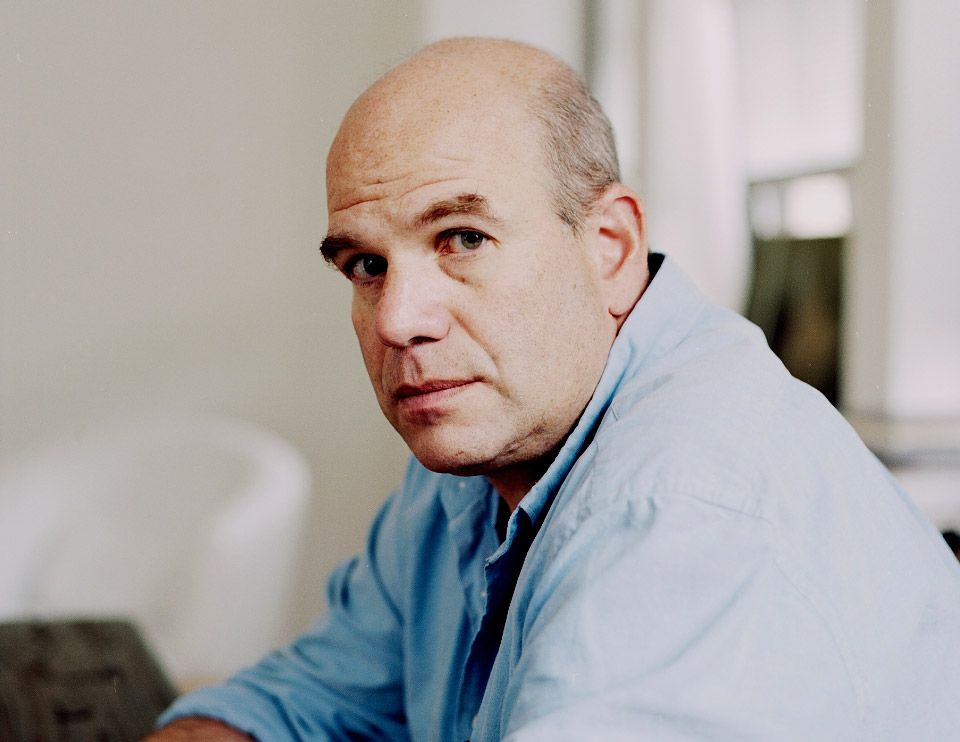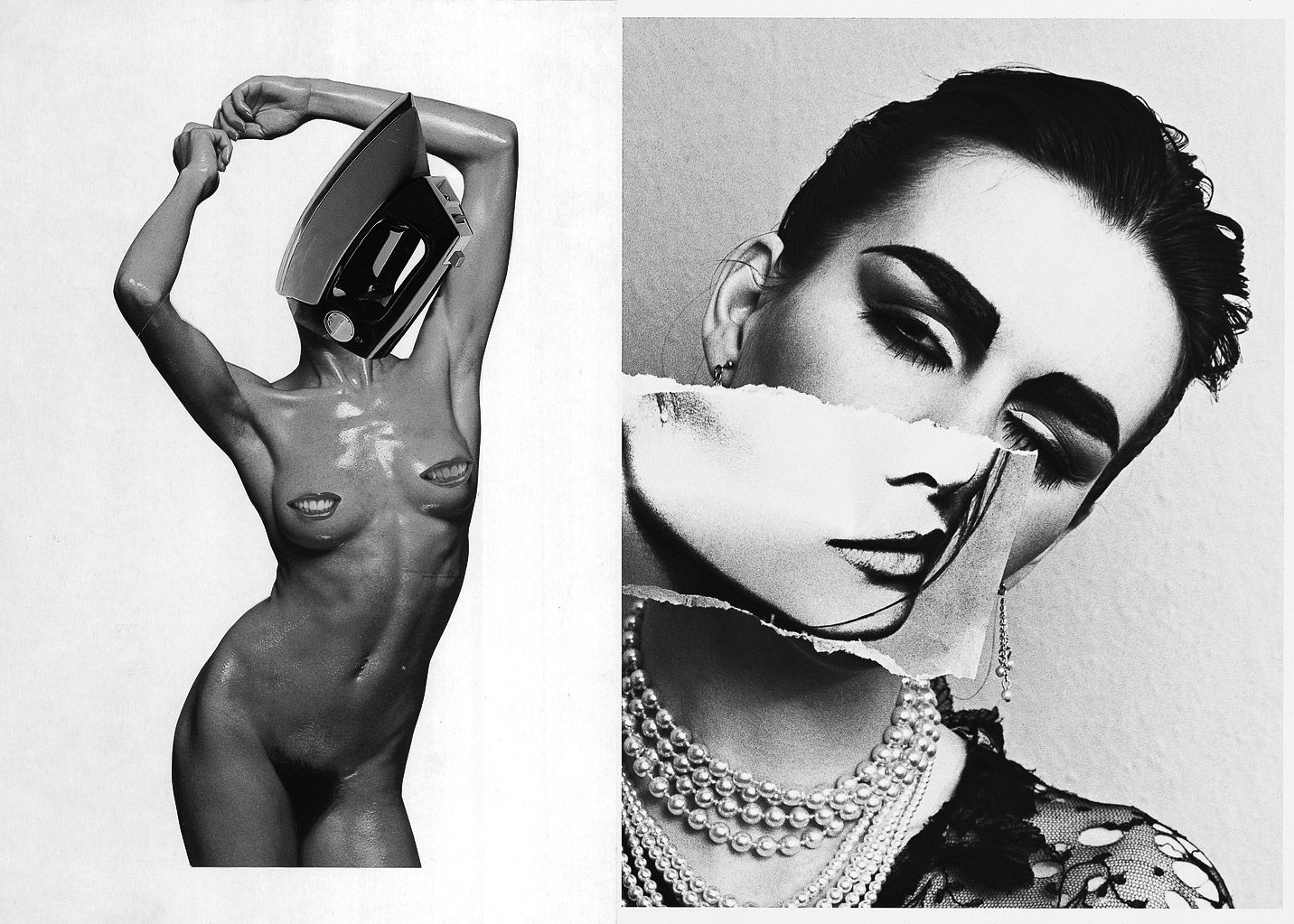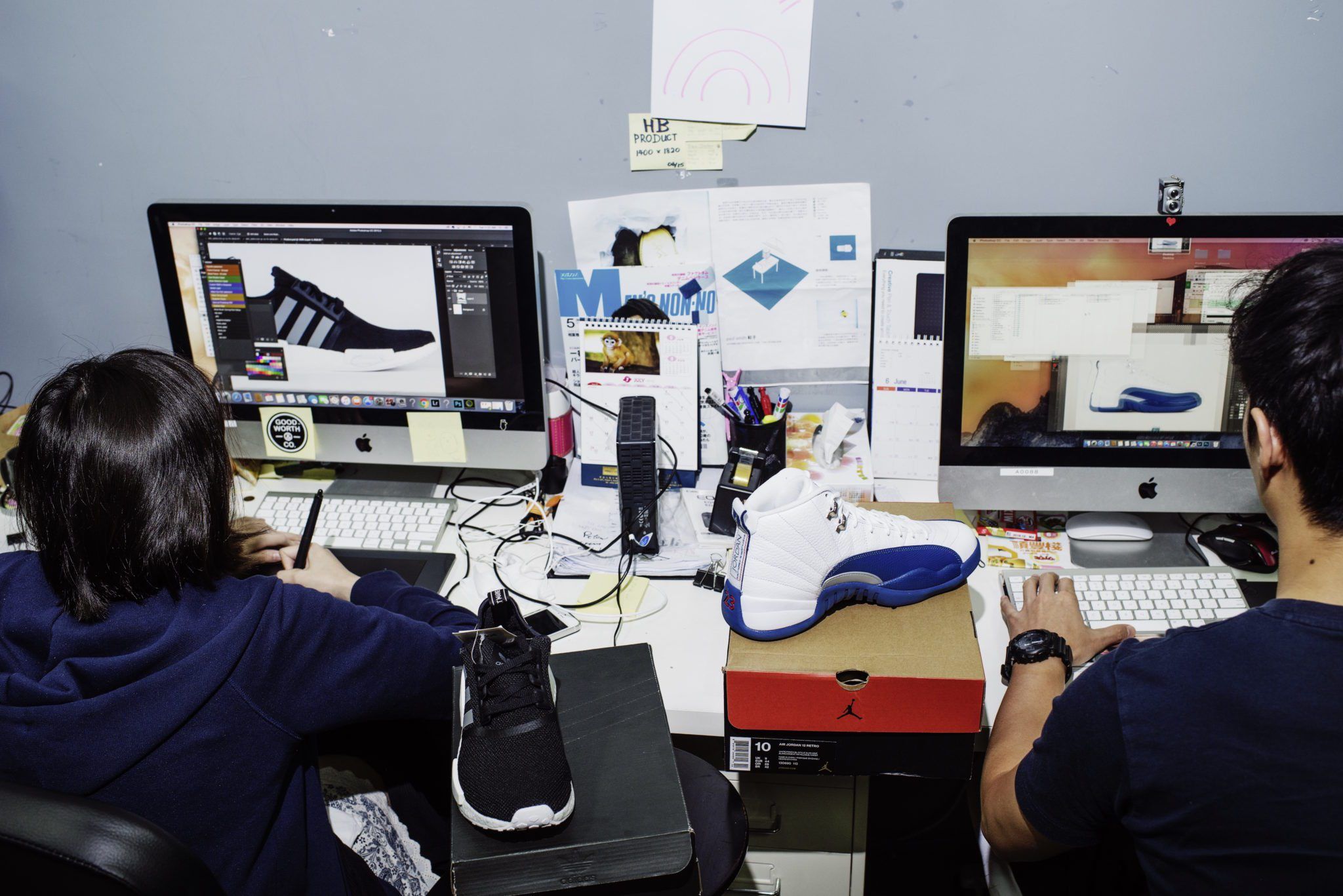ELYSIA CRAMPTON on performance: “The gift the ancestors have given me is this body”
|Theresa Patzschke
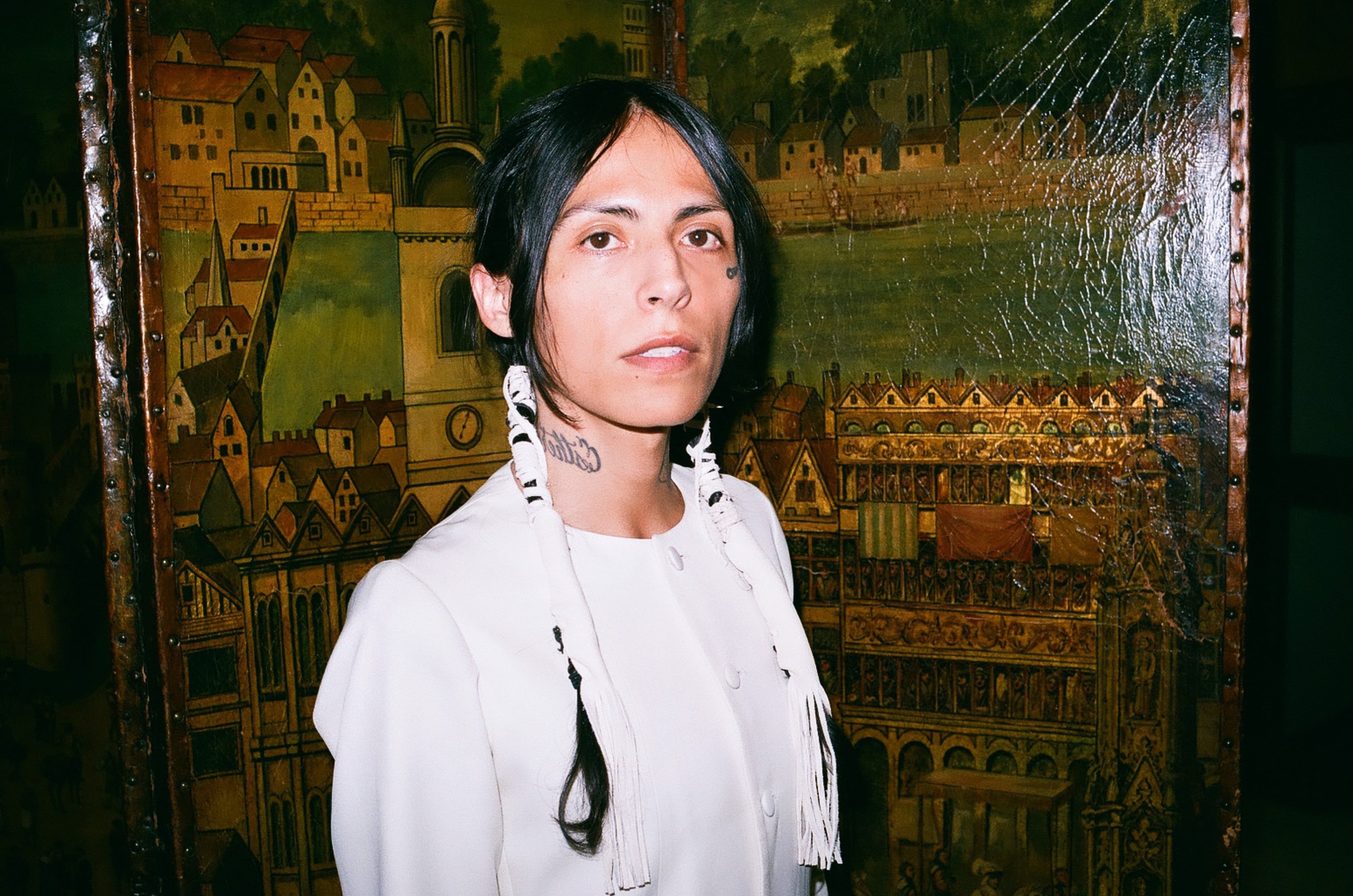
Elysia Crampton released a self-titled album this spring – her fourth solo LP – and recently wrapped up a European tour. When we caught up with her at a performance in Berlin, she spoke about the meaning of music, language, and physical appearance in the age of digital communication and crypto currencies, when our existence seems increasingly bodiless. Crampton, who was born in California to Bolivian parents, told us she considers the very notion of becoming as something that occurs “beyond a constitution of discreet-particle physics.” Despite (or thanks to?) this non-linear view, the artist remains connected to the ground, and to stone in particular. When she is on stage she seems to enter another world, almost dissolving into her music yet remaining totally present before her audience. She transmits her own narratives – of trans resistance and Amerindian history, among others – while leaving room for new stories, creating a fragile moment shared with those in attendance. In her music, elements such as Latin beats, experimental electronic sounds, and out-of-tune piano flow together to form something new and hard to classify. Elysia Crampton (Breakworld Records, 2018) is distinctive and eclectic, a very contemporary vision of that form of expression that is as political as it is intimate: the song.
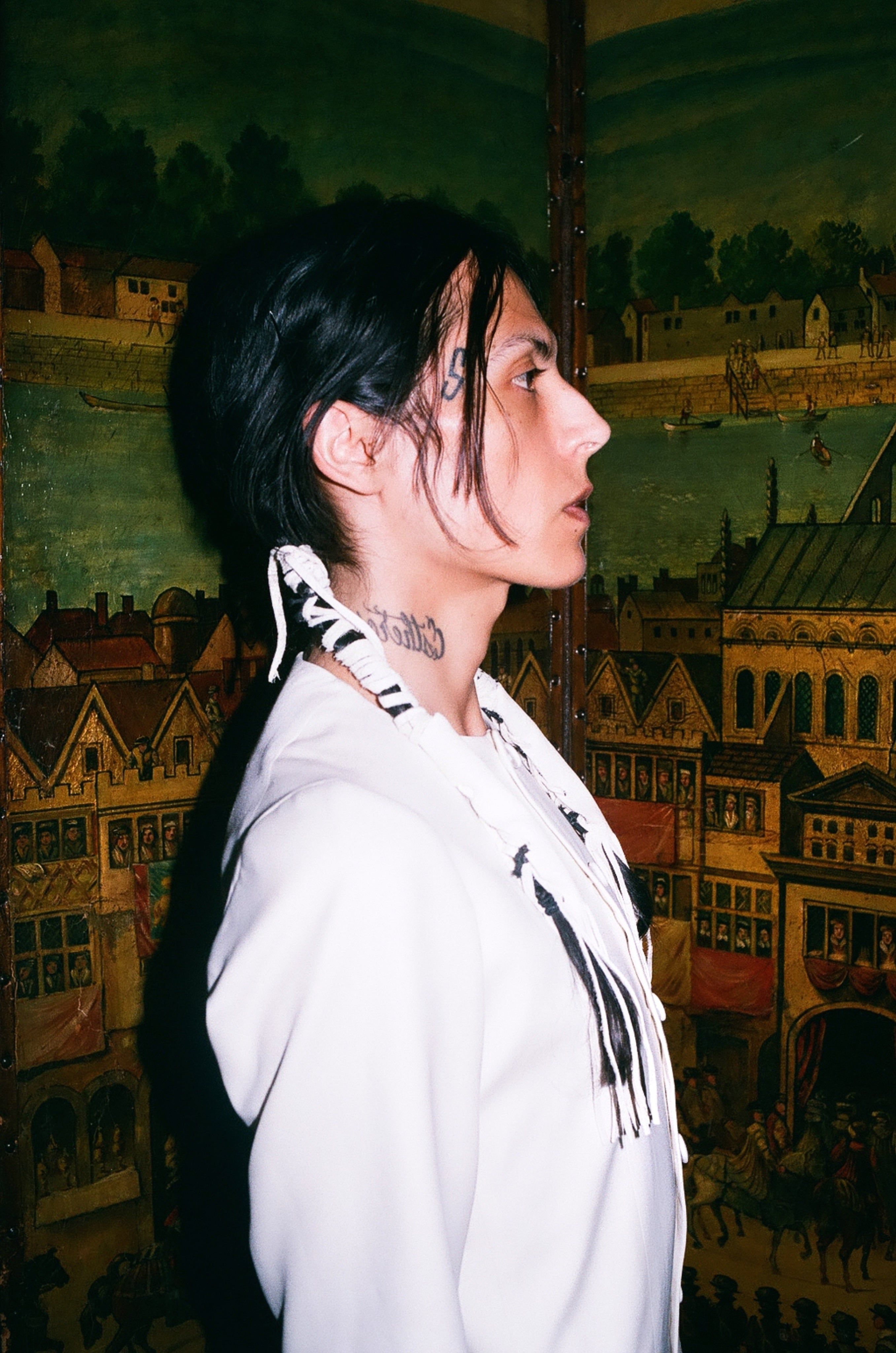
Theresa Patzschke: How do you feel on stage?
Elysia Crampton: I think I’m still sorting out how I feel when I’m on stage. I try to show up as I am, whoever or whatever that is, and incorporate that energy (or lack thereof) into the set. Sometimes I feel utterly humiliated. At other times I’m electrified by the force the audience and I seem to sustain or make evident, to reveal to one another in that process of becoming together. I’m still learning how to be a performer. That role is something I didn’t know I’d have to take on as a songwriter. All the money is in touring so for economic reasons I’ve had to make sense of that role, to make it real and necessary in my life and fulfill the task as honestly as possible.
The track list on your latest album opens with the song “Nativity” and ends with “Moscow.” Can you tell us a bit about that progression?
I suppose that has to do with the traveling I did last year. I started in Bolivia, and traveled for work through Asia, Australia, and Russia. It was my first time in Moscow and I connected with the people there. They had so much love and support for what I was trying to do.
So there was no political background to it?
I mean, in a sense the political is always in the work, whether or not it’s conceptually acknowledged. But I like to leave room for people to put their lives, their stories, their ideas into the music, because that’s what allows people to really bond with it on their own terms. And who am I to be the gatekeeper of what it should mean or not? That’s what’s great about music – it can generate and house multiple narratives.
Is music language or is music just music?
I suppose sound in general can be a kind of signaling, a form of communication that operates like a language, one which doesn’t demand literacy or reliance on formalized modes of education. When we get to something like the category of music specifically, so many individuals have already made boundaries, exclusions, exceptions. I’m not that interested or stuck on trying to “taxonomize” things or define stuff that way. I’m much more interested in becoming involved with those spacetimes where the settler-citizen’s territories break apart, fracture, cohabitate – where fields of force bend and spiral together. This is where life and that sonorous feeling-out – which some call music and others might call noise or nothingness – occur. That sounding happens regardless of whether there’s language given to make such distinctions or value-judgements in the first place, which is wonderful.
How do words and images relate to music in your work?
In this life, I can’t ever seem to find where certain stuff ends and other stuff begins. At the same time, I sympathize with a need for individuated, discreet things – the numbers that ground mathematics and design, for example, the objects of psychoanalysis, that sort of stuff. My own experience asks me to consider becoming beyond a constitution of discreet-particle physics.
Your own physicality is quite relevant to your performances. What does it mean nowadays – in the age of online media and bitcoin – to be physically present?
The gift the ancestors have given me is this body. The body is also a legitimate document. I’m not just saying that through the experience of having been a body summoned to appear and be present in a court of law, within the US legal system. I am saying that in the face of a logocentric society that places text as the highest justice, that embeds binary code into the attention/image economies we navigate. I’m still not sure what all of that means for the future (and the past), but in Aymara there is this term q’ara that translates to “being bare,” and is used to refer to someone with no belonging. The Indian chronicler known as Guamán Poma has a drawing called The royal administrator orders an African slave to flog an Indian magistrate for collecting a tribute that depicts something like this bareness. What Poma shows however is that, even bare, the wounds that mark the naked body of the Indian create a speckled pattern so that the torn flesh appears like that of the divine speckled feline, the apo de los otorongos, or “guardian of hermaphrodites and Indians of two natures,” as Santa Cruz Pachacuti wrote around the turn of the 16th century. It’s travesti morena ancestors like Ofelia (aka Carlos Espinoza) and Candy that also demonstrate to me, like Poma, that the body is enough to build agency and confront power — however wounded, however marred, however disabled or prohibited. That the body is enough is really all I can say at the moment.
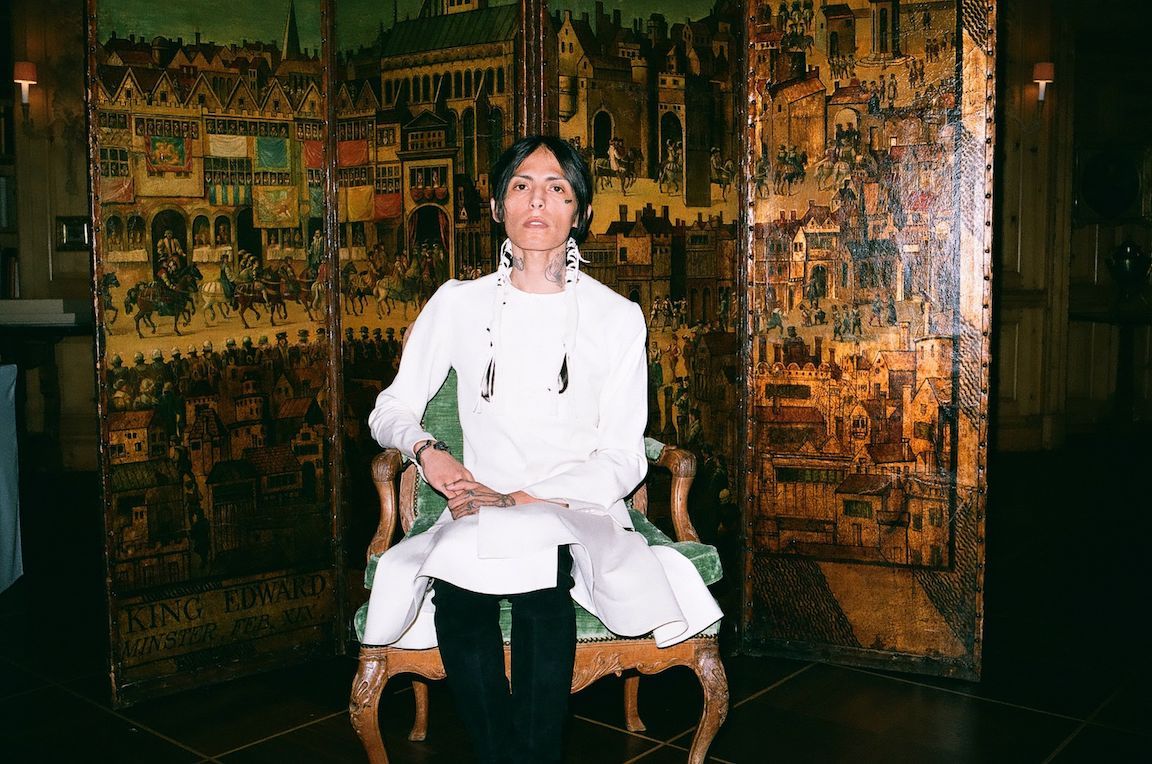
What does geology mean as a way to understand your music?
Geology fascinates me. I think it comes from our history, particularly with Aymara people or Quechuaymara culture – Quechua relating to the Inca, who the Aymara were captive and hereditary slaves to, but also coexisted with, battling the Spanish colonial powers together. The notion of stone is something that is prevalent in our daily lives because of geography and praxis, becoming part of the languages we signal – chemical, tactile, textual, textilic, iconographic, oral, etc. That affiliation with stone, with all of its becoming, all of its generativity – all of these things come into play and that’s a long history that also created me. The stones are my family and my ancestors, a shared becoming, a shared story.
When you are looking for inspiration, where do you go?
I’m inspired by music, and I’m inspired by feelings, but I am also a very visual animal. Sometimes I will sketch something and that drawing later turns into music. I’ve always enjoyed working with visual artists. For example, my friends, Seychelle “Money” Allah and Chino Amobi from Virginia. More recently, I’ve worked with fashion designer Grace Wales Bonner and artist Donna Huanca.
Who are the musicians that inspire you most at the moment?
[Producer and collaborator] Tobias Lee inspires me. For real, he does! [Tobias Lee has entered the room] He lifts me up and breathes new life into what I’m doing. I’ve also been listening to a lot of Waly Garcia, who is a Peruvian musician. He is a producer, plays the saxophone, and teaches martial arts. He’s brilliant. He doesn’t compensate tradition for a concept of modernity – his music is both timeless and situated in the here and now. Another musician from Bolivia: Shaitan. He plays a type of metal called DSBM (Depressive Suicidal Black Metal), but also plays in several bands. His solo work has a lot of minimal piano, which is similar to the post-minimal legacy I come out of, having lived on the west coast of California.
You and Tobias have been making music together for quite a while now. How do you find working in the studio together?
Tobias Lee: I feel like we spend a lot of time together – not working. It’s like 90 percent not doing anything, and that 90 percent is the reason the last 10 percent of the work happens. A lot of it is literally us just hanging out. Most of the time we don’t even talk about music. Just being together somehow makes us become closer and provides us with a better, shared idea of what we’re doing. That’s how it’s always been for me. We do have sessions but every time we forcefully try to record something it’s gone wrong. And every time something amazing comes out, it happens in a different way.
EC: It’s a way of problem-solving through affinity without having to sit down with a pen and a pad and rack our brains.
How would you characterize the stylistic development of your work since your first recordings under the moniker E+E?
Well, a journalist recently told me that my latest album, Elysia Crampton, was my most cohesive work to date. His comment had me thinking about this need or desire for a linear story, for linear progression. This new record was the debut album I’d originally wanted to put out in 2010. And I honestly could have put it out in 2008, had I been provided with the resources or access to studio equipment, instruments – that kind of stuff. I mean, you can see this trajectory, but it mostly has to do with economic access and building agency rather than developing my own sound. Now that I have more agency, more support than I did eight years ago, others are able to get a clearer picture of what I’ve been doing.
What makes you angry?
Tobias, what makes me angry?
TL: That’s a good question.
EC: I do have buttons. The other day I was on the plane and they refused to give me water. I guess I had to pay for water. For some reason it was a big trigger. Maybe because back in our house in Pacajes (Bolivia) we barely have running water and the water in the local river is salty. You have to walk miles to get the animals to fresh water. And coming from that, it blew my mind, it made me so angry. I mean on one side I felt like a brat [laughs]. I mean, the plane will land at some point and I could always drink out of the toilet at the airport . . .
TL: You are not really an angry person. I’ve never seen you angry. Only this one time: It was 5am and you couldn’t get a hotdog.
So it’s about the essentials . . .
It totally is.
Credits
- Text: Theresa Patzschke
- Photography: Maxime Ballesteros
